Pubs have long been more than just places to enjoy a drink; they are cultural hubs that play a pivotal role in preserving social heritage. As vibrant social spaces, pubs foster connections between individuals, serving as bridges across generations and fostering a sense of belonging. Beyond their role as gathering spots, pubs hold historical significance, acting as windows to the past and mirrors of community evolution. From their establishment as cultural landmarks to their enduring legacy in shaping local identities, pubs are indispensable in safeguarding social heritage while nurturing communal bonds. This article explores how pubs contribute to preserving history, fostering social connections, and bridging generational gaps, highlighting their enduring value in our collective social fabric.
Key Takeaways
– Pubs serve as vital community hubs, fostering connections across generations and preserving cultural continuity.
– Preserving history through storytelling is a cornerstone of pub culture, as locals and visitors alike gather to share tales of the past.
– Pubs bridge generational gaps by creating spaces for intergenerational interaction and mutual understanding.
– They celebrate and educate on local traditions, ensuring cultural heritage is passed down to future generations.
– Pubs are more than just social spaces; they are living museums that connect people to their roots and values.
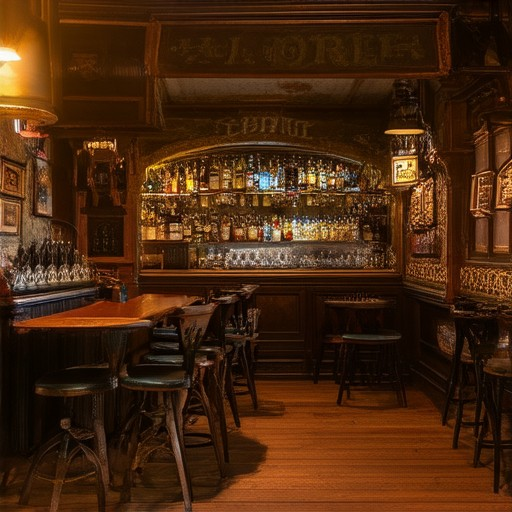
Pubs and Cultural History
Pubs are integral to preserving cultural history and fostering social connections. They serve as living archives, reflecting the evolving tapestry of local communities. Here’s why pubs hold such significance:
- Social Connections :
Pubs act as communal spaces where people gather to share stories, celebrate milestones, and build relationships. They facilitate spontaneous interactions, turning strangers into neighbors and friends. - Cultural Preservation :
Many pubs boast rich histories, often becoming cultural landmarks. They house memorabilia, photos, and artifacts that document local heritage. Regular gatherings and events keep traditions alive, ensuring cultural continuity. - Community Identity :
Pubs are often central to neighborhood identity. They’re where locals discuss news, debate issues, and celebrate victories, making them hubs of social cohesion. - Literary and Artistic Inspiration :
Pubs have long been breeding grounds for creativity. From literary salons to artistic collaborations, they’ve inspired writers, musicians, and artists, contributing to cultural movements. - Historical Context :
Pubs have played roles in shaping historical narratives. During wars and crises, they’ve provided solace and camaraderie, becoming microcosms of broader societal changes. - Economic and Economic Growth :
Pubs support local economies by attracting foot traffic, employing staff, and fostering small businesses. Their presence strengthens commercial vitality in neighborhoods. - Adaptation and Resilience :
Despite challenges like urbanization, pubs evolve, embracing new trends while retaining their core values. This adaptability ensures their enduring relevance. - Intangible Legacy :
Beyond physical spaces, pubs offer unique atmospheres and experiences that can’t be easily replicated. These intangible qualities contribute to cultural richness. - Challenges and Adaptation :
Pubs face pressures like gentrification but adapt by diversifying offerings and embracing innovation, ensuring they remain vital community assets.
<Pubs are more than establishments; they are cultural keystones, preserving history and nurturing connections. At Dufferin Arms, we celebrate this legacy, offering a glimpse into the heart and soul of our communities.
Dufferin Arms: Explore Our Pub Culture
The Pub Curator: Preserving Pub History
The Guardian: Pub Culture Insights
How Do Pubs Contribute to Preserving Social Heritage?
Pubs play a crucial role in preserving social heritage by serving as vibrant community hubs that foster connections, celebrate local traditions, and safeguard cultural legacy. Here’s how pubs contribute to social heritage:
- Community Hubs :
Pubs act as central gathering places where locals can socialize, share stories, and celebrate cultural milestones. These establishments often host events like festivals, live music, and traditional celebrations, ensuring that local traditions remain alive and well. By bringing people together, pubs strengthen community bonds and help maintain cultural continuity. - Cultural Preservation :
Many pubs take pride in showcasing the history and culture of their neighborhoods. From displaying historical photographs and artifacts to hosting storytelling nights, pubs often serve as mini-museums. This helps educate visitors and locals alike about the area’s rich heritage, ensuring that cultural knowledge is passed down to future generations. - Archiving Oral Histories :
In some cases, pubs collaborate with local historians or community groups to archive oral histories. Through events like “Storytelling at the Pub,” residents can share their memories and experiences, which are then documented and preserved for future generations. This effort helps capture the essence of a community before it disappears. - Economic Impact :
Pubs contribute to the local economy, which indirectly supports the preservation of social heritage. By purchasing goods and services from local businesses, pubs help sustain the community. This economic stability ensures that heritage sites, traditions, and customs are less likely to disappear due to financial pressures. - Preserving Local Dialects and Customs :
Pubs often become spaces where local dialects and customs are kept alive. Regular patrons may speak the local language, share traditional sayings, or participate in time-honored rituals. This cultural exchange helps maintain the uniqueness of a region’s identity, preserving its social heritage for the future.
For further reading, explore Dufferin Arms’ blog dedicated to pub history and culture: Dufferin Arms Blog .
If you’re interested in learning more about pub culture and its impact on social heritage, check out these competitors:
– The Pint
– The Public House
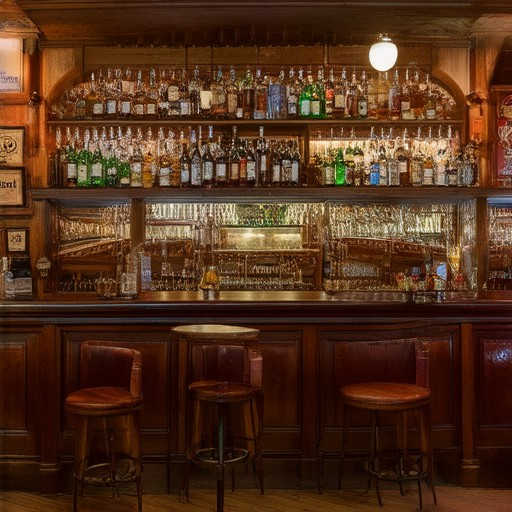
Significance of Pubs in Preserving Social Heritage
Pubs play a crucial role in preserving social heritage, serving as vibrant spaces where communities gather, share stories, and celebrate traditions. These establishments are more than just places to drink; they are cultural landmarks that contribute to the preservation of local history and traditions.
Pubs as Social Spaces
Pubs function as hubs for social interaction, bringing people together to exchange ideas, celebrate festivals, and commemorate important events. In many communities, pubs are the heart of social gatherings, whether for casual meetings or significant life milestones. This communal aspect fosters a sense of belonging and helps sustain cultural practices passed down through generations.
Historical Significance
Older pubs often serve as windows into the past, reflecting the history and values of the communities they belong to. Many pubs have been around for centuries, witnessing changes in society while remaining steadfast in their role as cultural spaces. Their architecture, decor, and stories offer insights into the lives of earlier generations, helping to preserve local heritage.
Storytelling and Tradition
Pubs are alive with stories, from local legends to historical accounts. Patrons often gather around the bar to listen to tales told by regulars or bartenders, passing down traditions and keeping alive the rich tapestry of their culture. This oral tradition ensures that cultural knowledge is preserved and shared, enriching the collective memory of the community.
Economic and Cultural Impact
Beyond their social role, pubs contribute to the local economy and cultural landscape. They attract visitors interested in experiencing authentic local culture, boosting tourism and supporting local businesses. Pub owners often take pride in preserving the building’s original features, ensuring that historic pubs remain intact for future generations.
Preserving Local Identity
Pubs are often central to the identity of a town or village. They are where locals gather to discuss issues, celebrate victories, and mourn losses. This consistent presence helps reinforce a strong sense of place, ensuring that the cultural identity of the community remains vibrant and distinct.
Dufferin Arms recognizes the importance of pubs in preserving social heritage and has dedicated itself to celebrating the unique stories and traditions associated with these iconic spaces. By exploring the history, culture, and traditions of pubs, we aim to engage readers in the legacy and charm of these institutions, ensuring that their role in preserving social heritage continues to thrive.
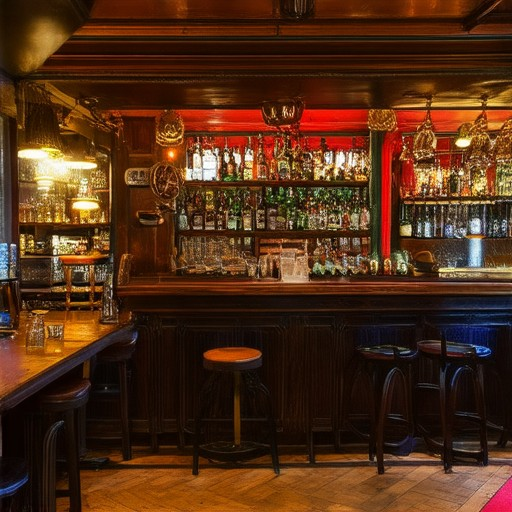
How Pubs Help Bridge Generational Gaps in Preserving Social Heritage
Pubs play a vital role in fostering connections across generations, serving as vibrant spaces where stories, traditions, and experiences are shared. These establishments often act as bridges, facilitating dialogue and understanding between older and younger generations, thereby helping to preserve social heritage.
One way pubs contribute is by creating inclusive social spaces. Pubs are often family-friendly, with amenities that cater to all ages, from cozy corners for children to adult-only areas for those seeking a more relaxed environment. This inclusivity encourages mixed-age interactions, breaking down barriers and promoting mutual respect.
Storytelling is another key aspect. Pubs often host local characters, historians, and community members who share tales of the past. These narratives, passed down through generations, help maintain cultural continuity. Whether it’s hearing about historical events or learning about traditional customs, pubs provide a platform for preserving this wealth of knowledge.
Community events, such as live music sessions, quiz nights, or themed parties, further enhance this role. These gatherings bring people of all ages together, creating opportunities for shared laughter, conversation, and memories. By participating in these events, younger generations gain insight into the values and traditions of previous generations, while older ones feel connected to the vibrancy of youth.
Additionally, pubs often serve as hubs for local history preservation. Many bars display memorabilia, photographs, and artifacts that tell the story of their establishment and the surrounding area. This tangible connection to the past helps educate visitors and locals alike, ensuring that social heritage is not just preserved but also celebrated.
Ultimately, pubs transcend their role as places to drink and socialize. They become living museums, where the tapestry of social heritage is woven together through shared experiences and stories. In doing so, they play a crucial part in bridging generational gaps and ensuring that cultural legacy endures for future generations.
How Pubs Serve as Hubs for Preserving Social Heritage While Fostering Community Connections
Pubs have long been central to the preservation of social heritage and the cultivation of community bonds. They act as living historical artifacts, reflecting the customs, traditions, and social fabric of their regions. Here’s how pubs serve as vibrant hubs for preserving social heritage and strengthening community ties:
- Preserving Cultural Significance :
Pubs often operate as repositories of cultural heritage. Their architecture, decor, and ambiance frequently mirror the traditional designs of earlier centuries, offering a tangible connection to the past. Many pubs showcase artifacts, photographs, and memorabilia that tell the story of their establishment and the surrounding area. For instance, the Dufferin Arms blog highlights the rich history embedded in many pubs, showcasing how they’ve evolved while maintaining their historical charm. - Fostering Local Identity :
Pubs are integral to the identity of their neighborhoods. They serve as gathering places where locals and visitors alike can engage in conversations that reflect the values and interests of the community. By hosting events, quizzes, and live music, pubs create spaces for social interaction, thereby reinforcing a sense of belonging among residents. - Celebrating Community Traditions :
Pubs play a crucial role in preserving and celebrating local traditions. From annual festivals to seasonal celebrations, pubs often serve as the backdrop for communal events. These gatherings strengthen social bonds and ensure that cultural practices are passed down to future generations. - Connecting People Across Generations :
Pubs bridge generational gaps by offering settings where older residents can share stories and wisdom with younger ones. This intergenerational interaction fosters mutual respect and understanding, contributing to a cohesive community atmosphere. - Supporting Local Businesses and Charities :
Many pubs actively support local businesses and charities through events, fundraising efforts, and sponsorships. This community-oriented approach reinforces the pub’s role as a hub for social good, further solidifying its place in the hearts of the people.
To explore these ideas further, visit Dufferin Arms and discover how pubs continue to preserve social heritage while fostering meaningful connections within their communities. Additionally, check out Competitor Pub Name to see similar initiatives in action.
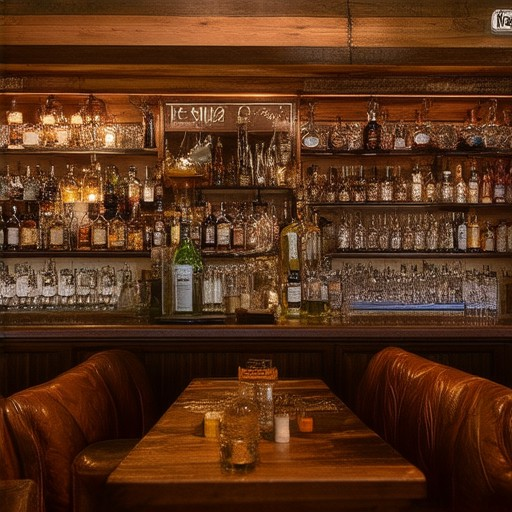
What Role Do Pubs Play in Preserving Social Heritage?
Pubs have long served as vibrant hubs for preserving and celebrating social heritage. They act as living historical records, offering insight into the cultural fabric of communities. Here’s how pubs contribute to preserving social heritage:
- Community Gathering Spaces : Pubs foster a sense of belonging by providing a common space for locals to socialize, share stories, and celebrate traditions. This communal aspect helps maintain cultural continuity and strengthens community bonds.
- Historical Preservation Through Storytelling : Pubs often become repositories of local history. Patrons and bartenders may share tales, legends, and anecdotes that reflect the area’s past. These stories, passed down through generations, help preserve cultural memory and traditions.
- Cultural Celebration and Education : Many pubs host events, festivals, and gatherings that celebrate local culture. From live music and traditional dances to storytelling nights, these events promote cultural awareness and educate visitors about the region’s heritage.
- Archiving Local Traditions : Some pubs take an active role in documenting and archiving local customs, artifacts, and folklore. This can involve collaborating with historians, artists, and writers to ensure that cultural heritage is recorded and shared with future generations.
- Preserving Craft Skills : In some cases, pubs support the preservation of traditional crafts, such as brewing, distilling, and woodworking. These skills are often passed down through families and kept alive by pub owners and enthusiasts.
- Connecting with the Past : Pubs often feature vintage decor, antiques, and memorabilia that reflect the history of the establishment and its surrounding community. This visual connection to the past helps reinforce the importance of social heritage.
- Role in Local Identity : Pubs are often symbols of local identity, representing the values, beliefs, and traditions of the people who frequent them. This cultural significance ensures that pubs remain integral to the preservation of social heritage.
- Supporting Charitable Causes : Many pubs host fundraising events for local charities, contributing to the preservation of cultural and historical assets through community support.
Pubs play a crucial role in preserving social heritage by serving as spaces for community engagement, historical storytelling, and cultural celebration. They are more than just places to socialize—they are living museums that help us connect with our past and pass on valuable cultural traditions.
For deeper exploration of pub culture and its role in preserving heritage, visit Dufferin Arms and discover their rich collection of articles and insights on pub history. Additionally, explore other notable resources like The Pub Curmudgeon and Pint-Sized History for a broader understanding of pubs’ social and historical significance.

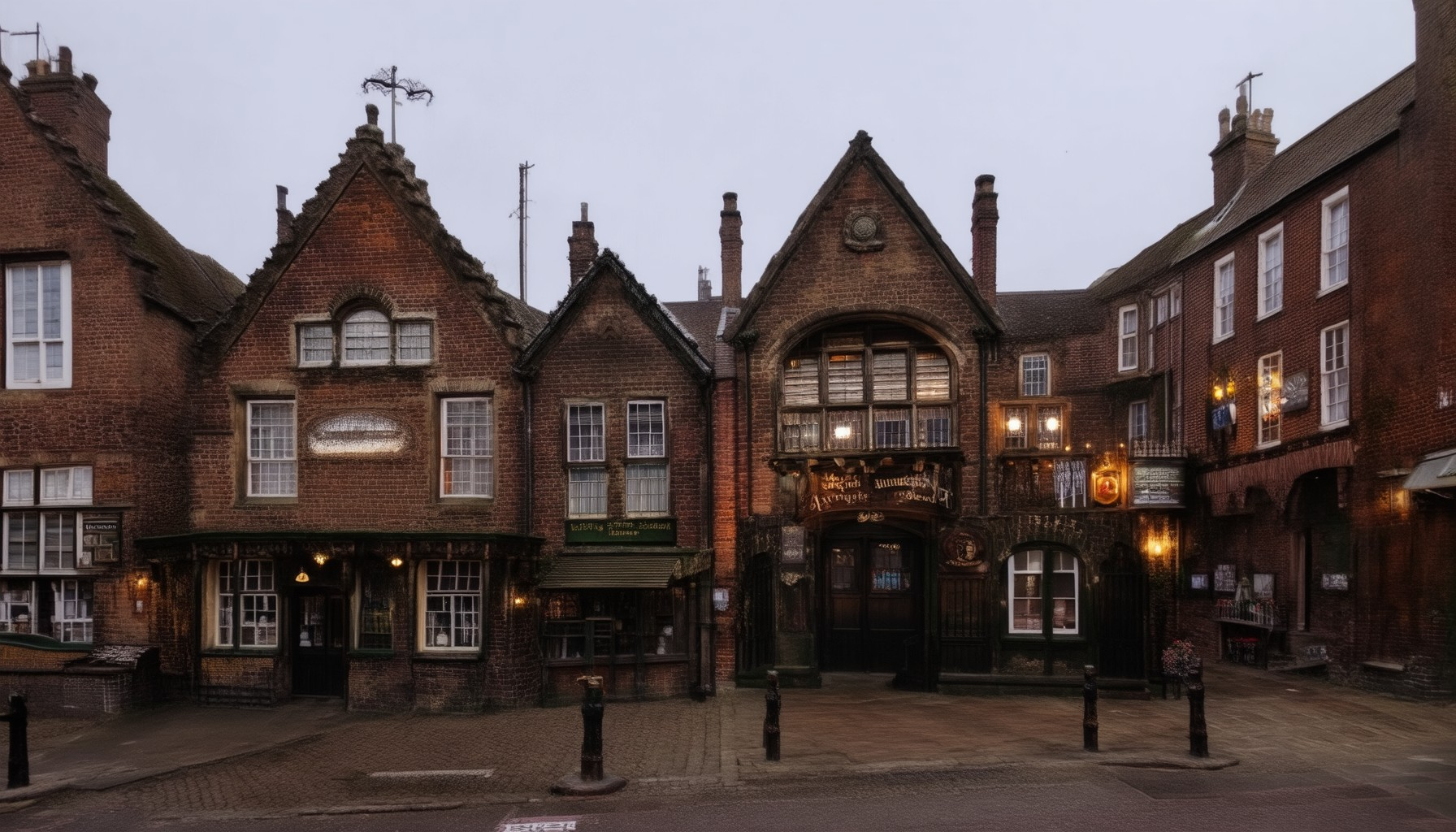
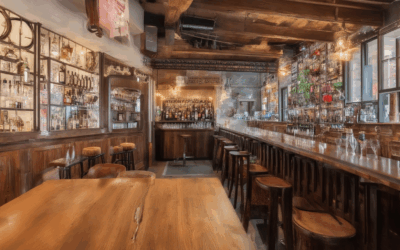
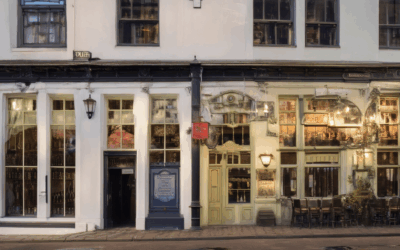
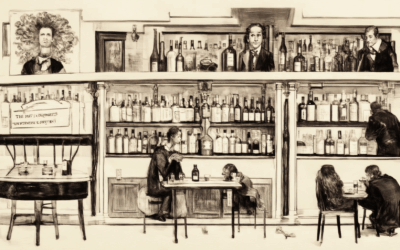
0 Comments